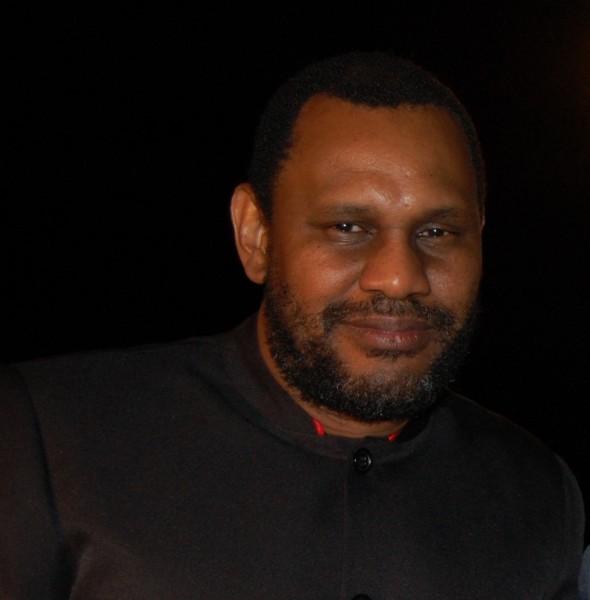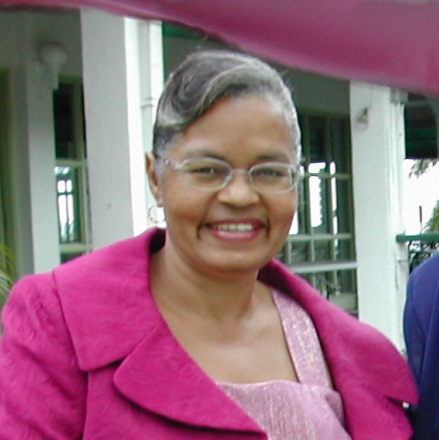On June 6th & 7th 2013, the Caribbean Branch of the United States Cochrane Centre was launched at the Universtity of the West Indies.
This Branch is the result of a collaboration that started with the formation of the University of the West Indies Clinical Epidemiology Network (UWI-CEU) in 2009 and the hard work by local champions of Systematic Reviews with tremendous support from members of the International Clinical Epidemiology Network and their Institutions, Government Agencies (ELAP), the Pan American Health Organization and The University of the West Indies. It was through the UWI-CEU that the Co-Director of the CBUSCC, Mr. Damian Francis was trained in systematic reviews at the University of Ottawa. Since then two additional core members of the Branch were trained in the knowledge synthesis methodology - Ms. Chisa Cumberbatch at the University of Ottawa, Institute of Population Health and Dr. Nadia Bennett at the US Cochrane Center based at Johns Hopkins University Bloomberg School of Public Health. The idea to create a Regional Branch arose as a way of maximizing the interaction between the countries of the region, as well as allowing a more intense level of Cochrane dissemination.
This effort has also been supported by the US Cochrane Center, the Pan American Health Organisation/World Health Organisation and the Canadian Society for International Health. In preparation for this event, core members of the new Branch have been working towards introducing systematic reviews to the region by:
- Facilitating a health system strengthening workshop which introduced the principles of conducting a systematic review to thirty-four (34) participants throughout the region
- Developing and delivering Evidence Based Health Care Modules for delivery as a short course, a module for Graduate students and post graduate physicians.
The Caribbean Branch of the US Caribbean Center (CBUSCC) will operate through a network of individuals and institutions within the developing states of the English speaking Caribbean and affiliated Cochrane entities. The core membership of the CBUSCC is five members with additional available expert support. There will be two co-directors that provide oversight for the day to day operation of the branch and liaise with the US Cochrane Center and affiliated Cochrane entities.
Pictures and Videos from our launch
The guest speakers were:
 Mark G. Wilson, MBA
Mark G. Wilson, MBA
Chief Executive Officer Cochrane Collaboration
Mr. Mark Wilson has been the Chief Executive Officer of the Cochrane Collaboration since November 2012, and member of the Royal Institute of International Affairs and the International Institute for Strategic Studies. He is also a Fellow of the Chartered Management Institute in the UK.
From 2004 to 2012 Mr. Wilson was Executive Director of Panos London, and Chair of the worldwide Panos Network of Institutes which he helped to establish.
Mr. Wilson has extensive leadership experience in international humanitarian and development organizations, including the International Federation of Red Cross and Red Crescent Societies. Previously he had been Head of Delegation in Mozambique; managed the Federation’s humanitarian operations in former Yugoslavia from 1996 to 2000; and was in charge of the Federation’s Appeals & Reports for Africa and Europe from 1994 to 1996.
As a former journalist in London and Hong Kong, and Communications Director of the Swiss-based Business Council for Sustainable Development, he is an experienced commentator on international economics, business and politics.
Roberta Spencer, PhD
Associate Director, US Cochrane Center and Associate Scientist at the Johns Hopkins Bloomberg School of Public Health, Department of Epidemiology in the Center for Clinical Trials.
Dr. Roberta (Bobbi) Scherer’s research interests include clinical trial and systematic review methodology, biases associated with publication of randomized controlled trials, and registration of trials at inception. She produced the first Cochrane methodology systematic review, examining publication bias in the subsequent full length publication of conference proceedings abstracts.
Dr. Scherer has also been involved in the design and conduct of multi- and single-centered randomized controlled trials in vision, women’s health, tinnitus, Alzheimer’s disease, and complementary and alternative medicine. Teaching activities include clinical trials management at the Johns Hopkins Bloomberg School of Public health, and numerous workshops on performing systematic reviews. Dr. Scherer also participates in an advisory capacity for toxicology groups investigating systematic review methodology.
 Donald Simeon, PhD
Donald Simeon, PhD
Deputy Executive Director of the Caribbean Public Health Agency (CARPHA), and Director of Research, Evaluation, Training and Policy Development at CARPHA
Dr Donald Simeon is a Chartered Statistician and Fellow with the Royal Statistical Society, UK as well as a Registered Public Health Nutritionist, Nutrition Society, UK and Registered Nutritionist in Trinidad and Tobago. He is a Board Member of the Geneva-based Council on Health Research for Development (COHRED). He also chairs the Research Ethics Committee, Ministry of Health, Trinidad and Tobago and serves on the Executive of the Bioethics Society of the English-speaking Caribbean (BSEC) and the Editorial Board of the West Indian Medical Journal. He is a member of Trinidad and Tobago Association of Nutritionists and Dietitians, American Society for Nutritional Sciences and the International Biometric Society Network for Central America.
Susan Walker, PhD
Professor of Nutrition and Director, Tropical Medicine Research Institute
Professor Susan Walker is an internationally recognised expert in global child development, and highly respected within the international child development academic and policy communities. She was lead author in papers in the highly influential Lancet series (2007, 2011) on child development. She is a founding member of the Global Child Development Group, whose secretariat is based at UWI. Professor Walker is now engaged in international efforts to inform and scale up integrated interventions for young children in collaboration with the Sackler Institute for Nutrition Sciences at the New York Academy Sciences, and an Institute of Medicine/National Research Council initiative to advance understanding in policy, and practice of investing in young children globally. She is also a coordinator of the forth-coming Lancet series on nutrition.
Luis Gabriel Cuervo, MD, MSc
Senior Advisor, Research Promotion and Development, Pan American Health Organization (PAHO/WHO)
Dr. Luis Cuervo is a Family Medicine Specialist and a Clinical Epidemiologist & Biostatistician with INCLEN and LatinClen Networks to which he is an active contributor. He is a member of the Cochrane Collaboration since 1994 when he spearheaded it's development in Colombia. He has established strategic partnerships, developed a stipends policy for low and middle income countries, and advised Scientific Committees for Colloquiums. Dr Cuervo has worked with leading experts influencing public health policies, and building capacities to produce and use research for health. He has developed productive partnerships and has worked as a Senior Clinical Editor (BMJ Publishing Group) and peer reviewer for leading journals. He has also contributed to the improvement of research reporting and publication standards, research management, and health research governance. Dr Cuervo curates the Art for Research Exhibits, illustrating the returns of research for health in social and economic development.
 Jeremy M. Grimshaw, MBChB, PhD, FRCGP, FCAHS.
Jeremy M. Grimshaw, MBChB, PhD, FRCGP, FCAHS.
Co-Chair of the Cochrane Collab-oration Steering Group, Director of Cochrane Canada
Professor Jeremy Grimshaw was trained as a family physician prior to undertaking a PhD in Health. His research focuses on the evaluation of interventions to disseminate and implement evidence-based practice. Dr. Grimshaw is a Senior Scientist, Clinical Epidemiology Program, Ottawa Hospital Research Institute, a Full Professor in the Department of Medicine, University of Ottawa and a Tier 1 Canada Research Chair in Health Knowledge Transfer and Uptake. He is also the Principal Investigator of Knowledge Translation Canada (KT CANADA), a CIHR and CFI funded interdisciplinary network of over 50 knowledge translation researchers from six academic health science centres in three provinces. Professor Grimshaw is the Co-ordinating Editor of the Cochrane Effective Practice and Organization of Care group.
 Peter Tugwell, MD, MSc, FRCPC, FCAHS
Peter Tugwell, MD, MSc, FRCPC, FCAHS
Professor of Medicine and Epidemiology & Community Medicine, and Director for the Centre for Global Health, University of Ottawa.
Professor Peter Tugwell is Co-director of a WHO Collaborating Centre for Health Technology Assessment and has been awarded a Canada Research Chair in Health Equity. He also serves as Secretary General to INCLEN's North American group, CanUSAclen. Professor Tugwell is Co-ordinating Editor of the Cochrane Musculoskeletal Group. Under his leadership, two of the first Cochrane reviews using network meta-analysis have been published in the Cochrane Library; entitled "Adverse effects of biologics: a network meta-analysis" (2011) and "Cochrane overview and Biologics for rheumatoid arthritis: an overview of Cochrane reviews" (2010). Professor Tugwell is also Editor of the Journal of Clinical Epidemiology.
 Afette M. McCaw-Binns, BA, MPH, PhD
Afette M. McCaw-Binns, BA, MPH, PhD
Professor of Reproductive Health and Epidemiology and Head, Department of Community Health and Psychiatry, University of the West Indies, Mona.
Professor McCaw-Binns research interests span maternal and child health, with a focus on maternal and perinatal survival and vital registration completeness and quality. In Jamaica, she has advised the Ministry of Health and the Planning Institute of Jamaica on improving quality care for mothers, including establishment of their referral antenatal care system, and the national maternal mortality surveillance system and has provided guidance on improving vital registration. She has also been of service to the World Health Organization (WHO), the Institute of Medicine and the Pan American Health Organization includes evaluations of PEPFAR, Reproductive Health Research, maternal mortality and work on HIV prevention. WHO working group outputs include advice on definitions and guidelines for measuring perinatal and maternal morbidity and mortality; with current work aimed at developing a comprehensive framework for measuring maternal morbidity.
